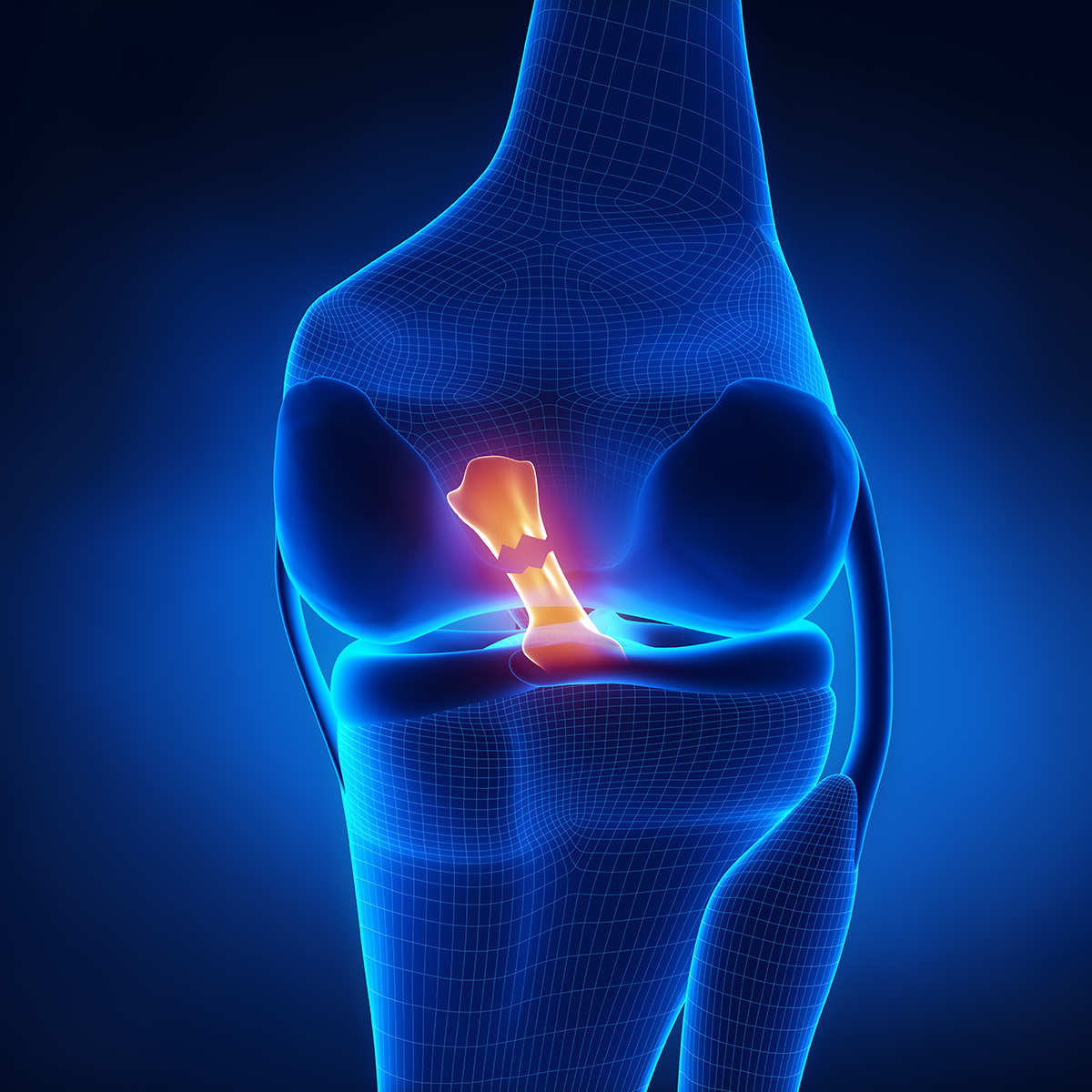A Boston Children’s Doc Developed a New ACL Surgery

ACL photo via Shutterstock
A Boston Children’s Hospital surgeon may be at the forefront of a new, better era of knee surgery.
Bridge-Enhanced ACL Repair (BEAR) surgery, a technique developed by orthopedic surgeon Martha Murray, is billed as a less invasive, more effective ACL replacement procedure. And, according to a Boston Globe report, the method seems to be living up to its hype, at least for now.
On Wednesday, Murray announced that all 10 patients who have undergone BEAR ACL surgery have begun to regrow healthy ACLs. “The safety study showed us that this is possible,” Murray told the Globe. “The ACL can regenerate and come back. We can let our body do what it does so well.”
BEAR helps the body form a new ACL using a sponge bridge. The sponge serves as scaffolding between the torn ends of the ACL, and is infused with the patient’s own blood. Over time, it helps the ACL regrow, first meeting the sponge and eventually replacing it, giving the patient a seemingly natural ligament. Early stage testing, in mice, also suggests BEAR surgeries are less likely to lead to arthritis down the road.
The procedure is a marked departure from traditional ACL operations, which use a donor tendon, taken from elsewhere in the patient’s body, held in place with screws.
Only time will tell how BEAR ACLs fare in the long-term, and whether they’ll work in a larger patient population. The surgery is very much still in its beta stage, with Murray moving now into Phase 2 trials. This summer, she’ll enroll 100 patients, between the ages of 14 and 35, for a two-year, randomized, double-blind study.
Though the road ahead is long, Murray’s work is encouraging for the thousands 0f athletes who tear an ACL every year.
“I think of it as a mom,” Murray told the Globe. “I’ve always thought of it that way. If my kid tears her ACL, I want a surgery that’s as easy on her as possible. If we could make the sponge work as well as the graft, it would be so much easier on patients.”


